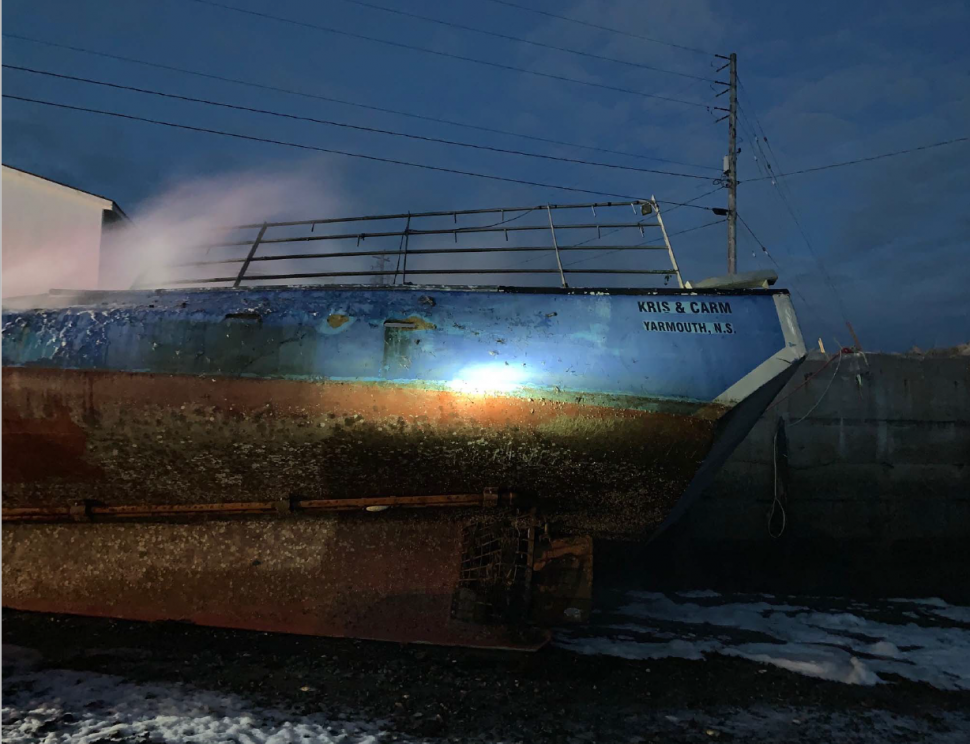Nova Scotia RCMP are investigating after a Mi’kmaw fishing boat was set on fire and destroyed Monday at the wharf in Comeauville, N.S.

Cpl. Andrew Joyce, a spokesperson for the RCMP, said that officers were called to the wharf by an employee at 5:56 a.m.
The boat had been at the wharf for at least six weeks for mechanical repair.
Joyce said the cause of the fire is still under investigation but it has been ruled as suspicious. There were no injuries in the blaze.
The 36-foot-long boat, Kris & Carm, is owned by Robert Syliboy of the Sipken’katik First Nation, one of the men who received a licence as part of the community’s moderate livelihood lobster fishery.
Syliboy could not be immediately reached for comment on Monday but said in a Facebook post that he’ll “stand tall for my nation! This is part of the uphill battle.”

Get daily National news
The suspicious fire comes after weeks of tension between non-indigenous commercial non-indigenous fishermen and members of the Sipken’katik First Nation who have taken part in the moderate livelihood lobster fishery.
RCMP have been called in to keep the peace and told Global News last month they were investigating incidents of threats, mischief and reports of shots.

The moderate livelihood fishery, which was launched last month, is tied to the 1999 Supreme Court of Canada decision stating Donald Marshall Jr. had a treaty right to fish for eels when and where he wanted, without a licence.
The Marshall decision said the First Nations of Eastern Canada could hunt, fish and gather to earn a “moderate livelihood.” The court followed up with a clarification two months later, saying the treaty right was subject to federal regulation for conservation purposes.
However, First Nations say that in the 21 years that have passed since the decision the federal government has yet to define moderate livelihood and the Federal Fisheries department has yet to reach agreements with each individual bands.
Non-Indigenous fishermen say that Indigenous fishermen are trapping lobsters outside the commercial fishing season.
But since the Sipken’katik First Nation’s moderate livelihood fishery opened other First Nations in the region have opened their own self-regulated fisheries, including the Potlotek First Nation in Cape Breton.
— With files from The Canadian Press
- Shooting at Rhode Island ice rink kills 2 during youth hockey game: police
- Anti-feminist ideology ‘increasingly relevant’ to national security: CSIS
- Savannah Guthrie issues new plea for mother’s return as police clear family
- Tumbler Ridge shooting fuels misinformation about trans people, organization says









Comments
Comments closed.
Due to the sensitive and/or legal subject matter of some of the content on globalnews.ca, we reserve the ability to disable comments from time to time.
Please see our Commenting Policy for more.